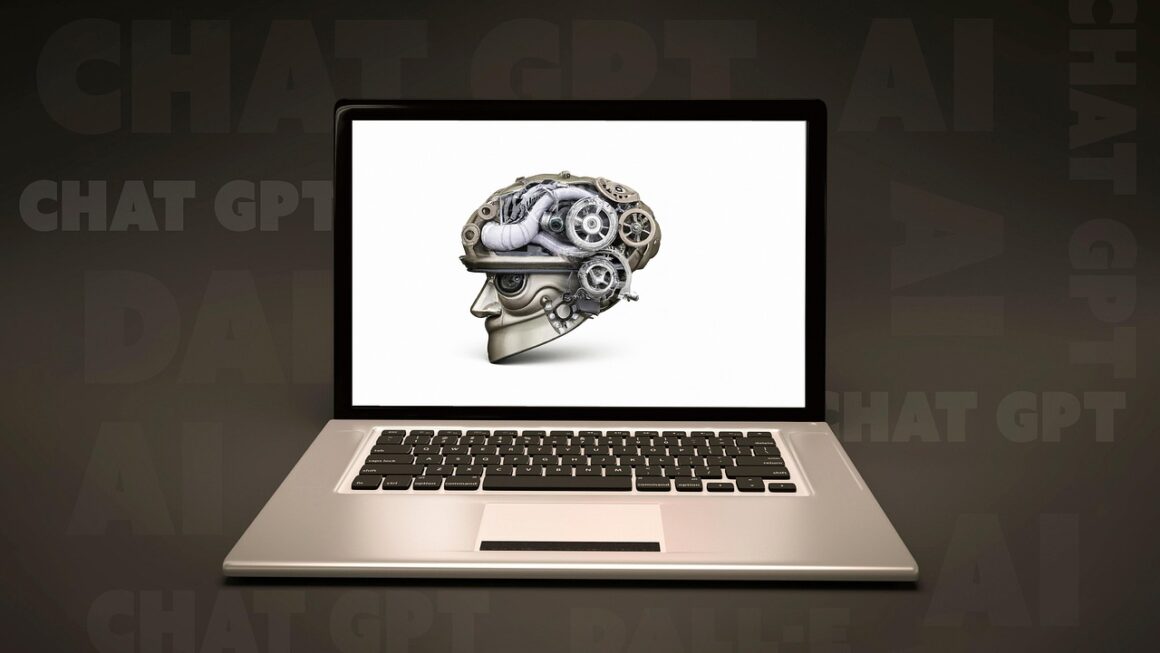The rise of Artificial Intelligence (AI) is no longer a futuristic fantasy; it’s a tangible reality reshaping industries and everyday life. From self-driving cars to personalized recommendations, AI applications are rapidly evolving, presenting both immense opportunities and compelling challenges. This blog post delves into the diverse landscape of AI applications, exploring their functionalities, benefits, and real-world impact.
AI in Healthcare
AI is revolutionizing healthcare, offering advanced tools for diagnosis, treatment, and patient care. Its ability to process vast amounts of data quickly and accurately is transforming medical practices.
Diagnosis and Disease Prediction
AI algorithms can analyze medical images, such as X-rays and MRIs, to detect diseases at an early stage. For instance:
- AI can identify subtle anomalies in mammograms that might be missed by human radiologists, leading to earlier detection of breast cancer.
- AI-powered diagnostic tools can analyze patient symptoms and medical history to suggest potential diagnoses, aiding doctors in making more informed decisions.
- Predictive models can analyze patient data to forecast the likelihood of developing certain conditions, allowing for proactive interventions.
Personalized Medicine
AI enables personalized medicine by tailoring treatment plans based on individual patient characteristics and genetic profiles.
- AI algorithms can analyze a patient’s genetic data to predict their response to specific medications, optimizing treatment efficacy and minimizing side effects.
- AI can analyze patient data to identify patterns and predict treatment outcomes, allowing doctors to personalize treatment plans for each patient.
- Wearable sensors and AI-powered monitoring systems can track patient health metrics in real-time, providing personalized feedback and alerts.
Drug Discovery and Development
AI accelerates the drug discovery and development process by identifying potential drug candidates and predicting their efficacy.
- AI algorithms can analyze vast databases of chemical compounds to identify molecules that are likely to bind to specific drug targets.
- AI can predict the efficacy and safety of drug candidates based on their chemical structure and interactions with biological systems.
- AI can optimize the design of clinical trials, reducing the time and cost required to bring new drugs to market.
AI in Finance
The financial industry is leveraging AI to enhance efficiency, improve risk management, and provide personalized services.
Fraud Detection
AI algorithms can analyze financial transactions in real-time to detect fraudulent activity.
- AI systems can identify unusual patterns in transaction data that may indicate fraudulent behavior, such as large or frequent transactions from unfamiliar locations.
- Machine learning models can learn from past fraud cases to identify new and emerging fraud patterns.
- Real-time fraud detection systems can flag suspicious transactions for review, preventing financial losses.
Algorithmic Trading
AI-powered algorithmic trading systems can execute trades based on pre-defined rules and market conditions.
- Algorithmic trading systems can analyze vast amounts of market data in real-time to identify trading opportunities.
- AI can optimize trading strategies based on market trends and historical data, improving profitability.
- Algorithmic trading systems can execute trades faster and more efficiently than human traders, reducing transaction costs.
Risk Management
AI helps financial institutions assess and manage risk more effectively.
- AI models can analyze credit scores, financial statements, and other data to assess the creditworthiness of borrowers.
- AI can predict the likelihood of loan defaults, allowing lenders to make more informed lending decisions.
- AI can identify and mitigate various types of financial risk, such as market risk, credit risk, and operational risk.
AI in Manufacturing
AI is transforming manufacturing processes, leading to increased efficiency, reduced costs, and improved product quality.
Predictive Maintenance
AI algorithms can analyze sensor data to predict equipment failures and schedule maintenance proactively.
- AI can identify patterns in sensor data that indicate impending equipment failures, such as increased vibration or temperature.
- Predictive maintenance systems can schedule maintenance tasks before equipment breaks down, minimizing downtime and repair costs.
- Remote monitoring can leverage AI to identify potential issues and dispatch technicians to specific areas.
Quality Control
AI-powered vision systems can inspect products for defects and ensure consistent quality.
- AI-based vision systems can automatically detect defects in products that might be missed by human inspectors.
- AI can analyze images of products to identify subtle variations in color, shape, or texture that indicate quality issues.
- Real-time quality control systems can provide feedback to manufacturers to improve their processes and reduce defects.
Supply Chain Optimization
AI can optimize supply chain operations by predicting demand, managing inventory, and improving logistics.
- AI algorithms can analyze historical sales data, market trends, and external factors to predict demand for products.
- AI can optimize inventory levels, ensuring that products are available when needed while minimizing storage costs.
- AI can improve logistics by optimizing transportation routes, reducing delivery times, and lowering transportation costs.
AI in Customer Service
AI-powered chatbots and virtual assistants are enhancing customer service by providing instant support and personalized experiences.
Chatbots
Chatbots can answer customer questions, provide support, and resolve issues 24/7.
- AI-powered chatbots can understand natural language and respond to customer inquiries in a conversational manner.
- Chatbots can handle a wide range of customer service tasks, such as answering FAQs, providing product information, and processing orders.
- Chatbots can personalize the customer experience by tailoring responses to individual customer preferences and needs.
Virtual Assistants
Virtual assistants can provide personalized recommendations, manage schedules, and automate tasks.
- AI-powered virtual assistants can learn from user interactions and provide personalized recommendations based on individual preferences.
- Virtual assistants can manage schedules, set reminders, and automate tasks, such as sending emails and making phone calls.
- Virtual assistants can integrate with other applications and devices, creating a seamless and personalized user experience.
Sentiment Analysis
AI can analyze customer feedback to understand their sentiment and identify areas for improvement.
- AI algorithms can analyze customer reviews, social media posts, and other forms of feedback to determine whether customers are satisfied or dissatisfied.
- Sentiment analysis can help businesses identify areas where they need to improve their products, services, or customer experience.
- By understanding customer sentiment, businesses can take proactive steps to address customer concerns and improve customer loyalty.
AI in Transportation
AI is revolutionizing the transportation industry, leading to safer, more efficient, and more sustainable transportation systems.
Self-Driving Cars
AI-powered self-driving cars can navigate roads, avoid obstacles, and transport passengers without human intervention.
- Self-driving cars use sensors, such as cameras, radar, and lidar, to perceive their surroundings.
- AI algorithms analyze sensor data to identify objects, predict their movements, and plan safe routes.
- Self-driving cars have the potential to reduce accidents, improve traffic flow, and make transportation more accessible.
Traffic Management
AI can optimize traffic flow by analyzing traffic patterns, predicting congestion, and adjusting traffic signals in real-time.
- AI algorithms can analyze traffic data from sensors, cameras, and mobile devices to identify patterns and predict congestion.
- AI-powered traffic management systems can adjust traffic signals in real-time to optimize traffic flow and reduce congestion.
- AI can also provide real-time traffic information to drivers, helping them avoid congested areas and find the fastest routes.
Logistics and Delivery
AI can optimize logistics and delivery operations by predicting demand, managing inventory, and improving route planning.
- AI algorithms can analyze historical sales data, market trends, and external factors to predict demand for products.
- AI can optimize delivery routes, reducing delivery times and lowering transportation costs.
- AI can also be used to automate delivery tasks, such as package sorting and drone delivery.
Conclusion
AI applications are rapidly transforming industries and everyday life, offering immense opportunities for innovation and improvement. From healthcare to finance, manufacturing to customer service, and transportation, AI is driving efficiency, personalization, and automation. As AI technology continues to evolve, we can expect to see even more transformative applications in the years to come. Embracing AI requires a strategic approach, focusing on ethical considerations, responsible implementation, and continuous learning to harness its full potential while mitigating potential risks.
Read our previous article: Beyond Bitcoin: Untapped Crypto Asset Frontiers
For more details, visit Wikipedia.




